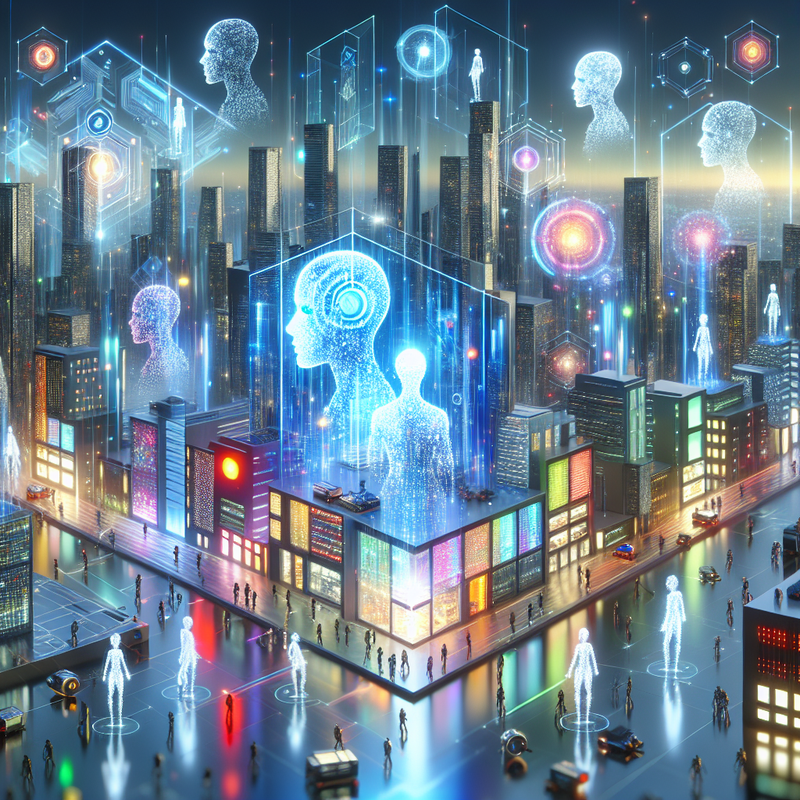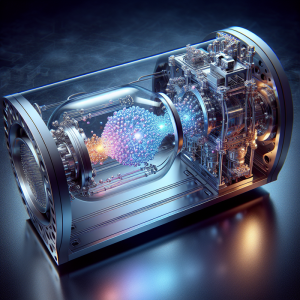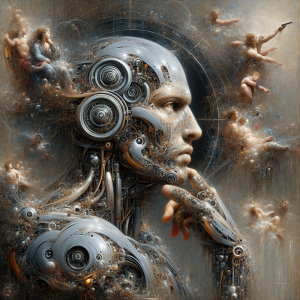Introduction
Unravel the mystery of agentic AI! As a rapidly growing field, agentic AI is paving the path towards smart automation. This cutting-edge technology has evolved to augment human capabilities, taking AI a notch higher than its contemporaries. Given the surge of developments, it’s imperative to delve into the nuances of agentic AI – an AI technology that’s set to change the world.
Exploring the basics in Agentic AI
Agentic AI, a term that’s been circling the AI industry, is a cognitive computing model that exhibit agentic capabilities. It encapsulates the set of systems that can independently learn, adapt, and interact with the environment.
Dating back, the roots of agentic AI can be traced to the evolution of Machine Learning (ML). Whilst traditional AI relied heavily on pre-programmed responses, the advent of ML paved the way for AI to learn and evolve. As ML evolved, the emergence of agentic AI marked a significant shift away from traditional AI models.
Fundamental Principles of Agentic AI
Identifying the fundamental principles of agentic AI is crucial to understanding its potential impact. Primarily, agentic AI is defined by autonomous behaviour, goal-oriented action, and the ability to learn from interactions.
The notion of autonomous behaviour distinguishes agentic AI from traditional AI. With agentic AI, the processes and responses are not pre-programmed. Instead, the AI agent employs reasoning and decision-making capabilities to act independently.
The goal-oriented nature of agentic AI forms the crux of its design. Unlike traditional AI, which often responds to a set of fixed inputs, an AI agent has a purpose. It devises methods and plans to achieve its goals, thus exhibiting a proactive approach rather specialized responses.
Lastly, Agentic AI’s knack for learning from their interaction is what seals its strength. This discipline of AI learns from its experiences and interactions, and uses this learned knowledge to enhance its performance and decision-making process.
Advanced Concepts in Agentic AI
Diving into complexities, understanding how agentic AI works sheds light on its brilliance. Essentially, an AI agent gathers information from its environment. This information influences its actions towards achieving its goals.
The icing on the cake is the symbiosis between autonomous behavior and agentic AI. How do they connect, you ask? The answer lies in self-directedness – a cornerstone of agentic design. In essence, agentic AI performs tasks without constant human supervision. It’s tasked with a goal and left unsupervised to strategise and achieve its objective.
Differentiating agentic AI from other forms AI rays out the revolutionary transformations it has brought into the life of AI. While traditional AI merely performed specific tasks rigidly, agentic AI understands, learns, evolves, and autonomously navigates its environment to accomplish a set goal. Its uniqueness lies in the “roots” – the agentic design is exclusive, transcending from the classic AI models.
Case Study: Application of Agentic AI in Various Fields
Transitioning from theory to practice, let’s observe agentic AI’s role in healthcare. Healthcare facilities leverage agentic design in AI for myriad purposes – disease detection, diagnostics, and even patient care. Personalized AI agents are ushering in the age of precision medicine, potentially revolutionizing traditional medical practices.
The Role of Agentic AI in Business and Industries
Stepping away from healthcare, agentic AI holds a prominent position within the veneer of business and industries. Its adoption across varied sectors contributes significantly to productivity and efficiency enhancement. Take, for instance, retail industries using AI agents across the supply chain, from inventory management to customer service. With this ability, AI agents can anticipate customer preferences and manage stock accordingly, alleviating discrepancies between demand and supply.
In manufacturing, AI agents have quickly taken root as essential tools for machinery health monitoring and preventive maintenance, minimizing downtime and bolstering production.
Agentic AI in Agriculture and Environmental Management
Agentic AI, with its decision-making abilities, extends its usefulness into the agriculture and environmental management sector. Its implementation in precision farming exemplifies this best. AI agents can analyze weather conditions, soil quality, and predict crop yield, leading to substantial production improvements.
Equally remarkable is the AI agents’ role in environmental management. By identifying patterns contributing to climate change or tracking endangered species, agentic AI helps in conserving the world around us.
Current Developments and Trends in Agentic AI
With any evolving technology, ongoing advancements and trends form the bedrock for future growth. In the agentic AI realm, technologies like machine learning and deep learning are making big waves. Such advancements empower AI agents to develop more sophisticated strategies and push the boundaries of what they can achieve.
The introduction of the “Field required” in agentic AI constitutes an important leap forward. This novel concept emphasizes that AI agents require a specific knowledge field to effectively accomplish tasks – a diversification from the generic approach employed in conventional AI systems.
Challenges and Future of Agentic AI
However, the journey of agentic AI isn’t without its set of challenges. Data privacy concerns, ethical considerations, and the looming fear of machines replacing human jobs are significant hurdles impeding the full-scale implementation of agentic AI.
Potential solutions to these challenges involve a balanced approach. Regulations must be put in place to protect data privacy and ensure ethical AI use. On job displacement concerns, reskilling and upskilling should be promoted to help individuals adapt to the AI-driven future.
Despite these challenges, the future of agentic AI shines bright with endless possibilities. Considering the pace of technological advancements, more applications of agentic AI will undoubtedly emerge across industries. The intelligent agentic design is bound to contribute to smarter and more efficient systems, ultimately leading to a future where AI and humans coexist and collaborate seamlessly.
Conclusion
Understanding the nuances of agentic AI and staying updated on its latest advancements has never been more crucial. As we stand at the cusp of AI revolution, the importance of agentic AI in shaping a new era of automation is almost tangible. From healthcare and business to agriculture and environmental management, agentic AI is proving its mettle across various fields.
Agentic AI holds immense promise for the future. While challenges exist, they are far outweighed by the benefits. As we continue to embrace this technology, we can look forward to a world where AI agents efficiently work alongside humans, contributing to societal progress like never before.
























